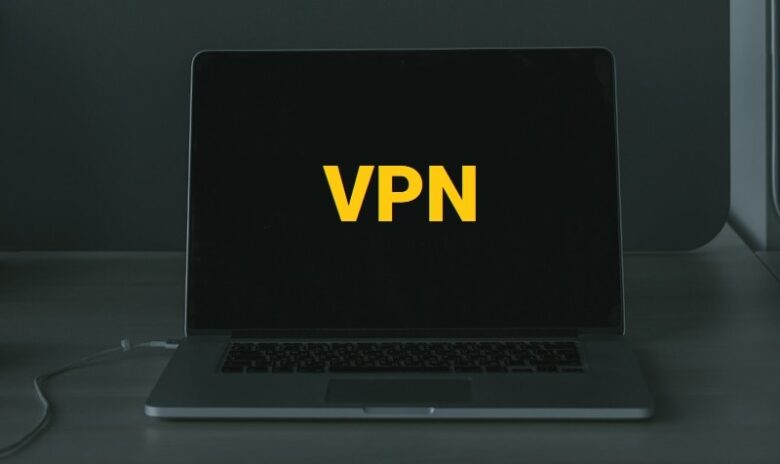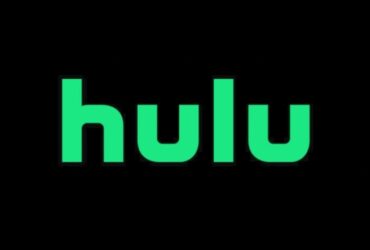In today’s digital age, online privacy and security have become major concerns for individuals and businesses alike. Virtual Private Networks (VPNs) offer a solution by encrypting internet traffic and providing a secure connection. With numerous VPN services available, it can be overwhelming to choose the right one. In this article, we will explore the top 10 best VPN services, highlighting their pros and cons, and ultimately help you make an informed decision.
Introduction
In this interconnected world, safeguarding our online activities has become crucial. VPN services play a vital role in ensuring our privacy and security by masking our IP addresses, encrypting our data, and enabling access to geo-restricted content. Let’s delve into the top 10 VPN services available, examining their key features, advantages, and disadvantages.
1. NordVPN
NordVPN is renowned for its robust security features and vast server network. It offers military-grade encryption, a strict no-logs policy, and advanced features like double VPN and Onion over VPN. While it provides excellent security, some users may find the interface slightly complex.
- Pros: Robust security features, vast server network, advanced features like double VPN and Onion over VPN.
- Cons: Slightly complex interface.
2. ExpressVPN
ExpressVPN is known for its lightning-fast speeds and extensive server coverage. It offers a user-friendly interface, strong encryption, and a wide range of compatibility with different devices and platforms. However, it is relatively expensive compared to other VPN services.
- Pros: Lightning-fast speeds, extensive server coverage, user-friendly interface, strong encryption.
- Cons: Relatively expensive compared to other VPN services.
3. CyberGhost
CyberGhost is a user-friendly VPN service that offers strong encryption, reliable performance, and a large server network. It provides specialized servers for streaming and torrenting, making it an ideal choice for content enthusiasts. However, the customer support response time can be slow at times.
- Pros: User-friendly interface, strong encryption, reliable performance, large server network, specialized servers for streaming and torrenting.
- Cons: Slow customer support response time at times.
4. Surfshark
Surfshark is a budget-friendly VPN that doesn’t compromise on features. It offers unlimited simultaneous connections, strong encryption, and a CleanWeb feature that blocks ads and malware. However, the server network is not as extensive as some other VPN providers.
- Pros: Budget-friendly VPN, unlimited simultaneous connections, strong encryption, CleanWeb feature that blocks ads and malware.
- Cons: Server network not as extensive as some other VPN providers.
5. Private Internet Access (PIA)
PIA is a trusted VPN service known for its affordable pricing and strong security measures. It offers a wide range of servers, supports P2P file sharing, and allows for up to 10 simultaneous connections. However, the user interface may appear outdated to some users.
- Pros: Affordable pricing, strong security measures, wide range of servers, supports P2P file sharing, allows up to 10 simultaneous connections.
- Cons: Outdated user interface.
6. VyprVPN
VyprVPN provides robust security with its proprietary Chameleon protocol, which bypasses VPN blocking and throttling. It offers a user-friendly interface, good speeds, and a free trial option. However, the pricing plans can be a bit costly compared to other VPN services.
- Pros: Proprietary Chameleon protocol for bypassing VPN blocking and throttling, user-friendly interface, good speeds, free trial option.
- Cons: Costly pricing plans compared to other VPN services.
7. IPVanish
IPVanish is a reliable VPN service with an emphasis on privacy and security. It boasts strong encryption, a strict no-logs policy, and unlimited simultaneous connections. However, it doesn’t offer a free trial, and the user interface could be more intuitive.
- Pros: Emphasis on privacy and security, strong encryption, strict no-logs policy, unlimited simultaneous connections.
- Cons: No free trial, user interface could be more intuitive.
8. Hotspot Shield
Hotspot Shield is known for its high-speed performance and user-friendly interface. It provides a free version with limited features and a premium version with enhanced security and access to more server locations. However, the free version displays ads, and the pricing plans are relatively expensive.
- Pros: High-speed performance, user-friendly interface, free version with limited features, premium version with enhanced security and access to more server locations.
- Cons: Free version displays ads, relatively expensive pricing plans.
9. ProtonVPN
ProtonVPN is a privacy-focused VPN service developed by the creators of ProtonMail. It offers strong encryption, a no-logs policy, and a free version with limited features. However, the free version has slower speeds, and the pricing plans for the premium version are higher than some competitors.
- Pros: Privacy-focused VPN service, strong encryption, no-logs policy, free version with limited features.
- Cons: Free version has slower speeds, premium pricing plans higher than some competitors.
10. VPN by Google One
VPN by Google One is a virtual private network (VPN) service provided by Google. A VPN is a technology that helps create a secure and encrypted connection over a less secure network, such as the internet. By using a VPN, your internet traffic is routed through a private server, hiding your IP address and encrypting your data. This provides you with a higher level of privacy and security while browsing the internet.
Google One is a subscription service offered by Google that provides expanded storage for Google Drive, access to Google experts for support, and various additional benefits. VPN by Google One is one of these additional benefits available to Google One subscribers.
With VPN by Google One, you can protect your online activity and maintain your privacy when using public Wi-Fi networks or when you want to browse the internet anonymously. It allows you to choose from various server locations around the world, giving you the ability to access region-restricted content and bypass certain internet censorship.
Pros:
- Enhanced privacy: VPN by Google One encrypts your internet traffic, making it difficult for hackers or third parties to intercept and view your data.
- Secure connection: It helps protect your connection when using public Wi-Fi networks, shielding your sensitive information from potential eavesdroppers.
- Access to geo-restricted content: By routing your internet traffic through servers in different countries, VPN by Google One allows you to bypass regional restrictions and access content that might be otherwise unavailable in your location.
- Easy to use: The VPN is integrated into the Google One app, making it convenient and user-friendly for customers already using Google’s services.
- Reliable service: As a product offered by Google, VPN by Google One benefits from the company’s robust infrastructure and network reliability.
Cons:
- Limited server locations: VPN by Google One currently offers a smaller number of server locations compared to some other VPN providers. This may limit the options available for bypassing geo-restrictions or accessing content from specific countries.
- Potential logging: Although Google claims it does not log user activity when using the VPN, some users may have concerns about data privacy due to Google’s data collection practices.
- Restricted to Google One subscribers: VPN by Google One is only available to customers who subscribe to the Google One storage plans. This means it’s not accessible to everyone and may require an additional cost.
- Potential performance impact: Using a VPN can sometimes result in slower internet speeds due to the encryption and routing processes. While Google’s infrastructure is generally reliable, individual experiences may vary depending on their location and network conditions.
Conclusion
Selecting the best VPN service depends on individual preferences and needs. NordVPN stands out for its security features, while ExpressVPN excels in speed and server coverage. CyberGhost and Surfshark offer a balance between features and affordability. PIA and VyprVPN provide reliable options with unique features. IPVanish emphasizes privacy, Hotspot Shield focuses on speed, and ProtonVPN prioritizes privacy and encryption.
FAQs
Can I use a VPN to access streaming platforms like Netflix?
Yes, many VPN services allow access to geo-restricted content on platforms like Netflix. However, not all VPNs are successful in bypassing these restrictions, so it’s important to choose a VPN known for its streaming capabilities.
Will using a VPN slow down my internet speed?
While a VPN may introduce a slight decrease in internet speed due to encryption and routing, the impact is often negligible, especially with high-quality VPN services.
Are VPNs legal to use?
VPNs are legal in most countries. However, some countries have restrictions on VPN usage or ban certain VPN providers. It’s essential to be aware of the laws regarding VPN usage in your specific location.
Can I use a VPN on multiple devices simultaneously?
Many VPN services allow multiple simultaneous connections, but the number of connections allowed may vary. It’s advisable to check the provider’s terms and conditions to ensure it meets your requirements.
Do VPNs work on mobile devices?
Yes, VPNs are compatible with mobile devices. Most VPN providers offer dedicated apps for Android and iOS, allowing you to secure your internet connection on your smartphone or tablet.
Can I trust free VPN services?
Free VPN services may come with limitations and potential privacy concerns. It is generally recommended to opt for a reputable paid VPN service for better security and reliability.
How do VPNs protect my privacy?
VPNs protect your privacy by encrypting your internet traffic and masking your IP address. This prevents third parties from tracking your online activities and enhances your security on public Wi-Fi networks.
Can I use a VPN for torrenting?
Yes, many VPN services support torrenting and provide dedicated servers optimized for peer-to-peer file sharing. However, it’s important to review the VPN provider’s policy on torrenting before engaging in such activities.
Will using a VPN bypass censorship?
VPNs can bypass censorship in some cases by allowing users to access blocked websites and services. However, the effectiveness of a VPN in bypassing censorship may vary depending on the country and the specific methods used to restrict access.
Are VPNs legal?
In most countries, using a VPN for personal use is legal. However, some countries may have restrictions or regulations on VPN usage, particularly in relation to activities like circumventing geo-restrictions or accessing banned content. It is important to familiarize yourself with the laws and regulations in your jurisdiction.






Leave a Reply